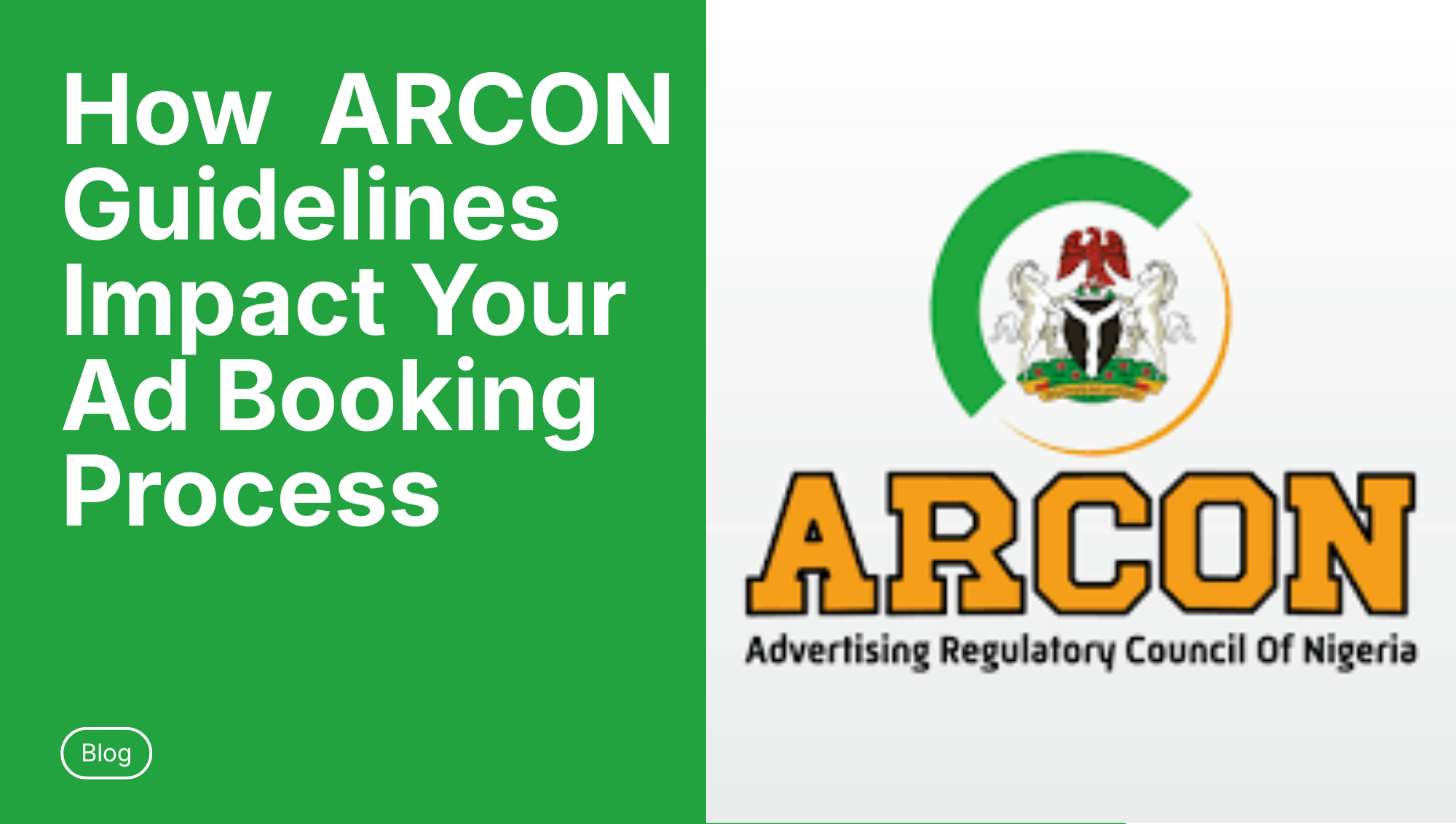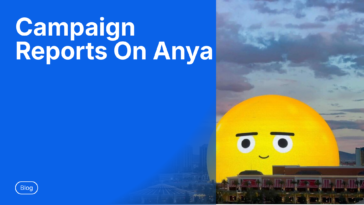If you’re planning to advertise in Nigeria, understanding the APCON (now ARCON) Advertising Regulatory Council of Nigeria guidelines is essential. APCON (now ARCON) enforces strict regulations that affect how businesses, agencies, and advertisers book ads, covering mandatory approvals, content restrictions, and digital ad compliance. These rules can impact your campaign’s timeline, budget, and overall strategy.
Originally established as the Advertising Practitioners Council of Nigeria (APCON) under the Advertising Practitioners Registration Act No. 55 of 1988, ARCON was significantly reformed under the ARCON Act 2022, which took effect on October 1, 2022. New regulations introduced tighter approval processes, increased compliance requirements, and stricter penalties for violations.
By mastering ARCON’s guidelines, businesses looking to book ads can now save time, prevent legal issues, and optimize their advertising strategies in Nigeria’s evolving media landscape
What Are the Key ARCON Guidelines and Their Impact on Advertising?
ARCON is responsible for regulating and ensuring ethical advertising practices in Nigeria. Their guidelines cover aspects such as:
Mandatory Ads Vetting and Approval Process
A core function of the Advertising Regulatory Council of Nigeria (ARCON) is ensuring that all advertisements meet national standards before they are exposed to the public. To enforce this, ARCON mandates that every advertisement, except public service announcements, goodwill messages, obituaries, and job vacancies, must be reviewed and approved by the Advertising Standards Panel (ASP) before being aired, published, or displayed. This vetting process ensures that advertisements are legal, and free from misinformation or disinformation.
Advertisers must factor in time for approval when planning their campaigns, as failure to submit an advertisement for vetting can result in delays, rejection, or financial penalties. Media organizations and digital channels also bear responsibility, as publishing or broadcasting an unapproved advertisement makes them liable for legal consequences. The vetting process ensures that ads are culturally appropriate, do not mislead consumers, and comply with ethical advertising practices before they reach the Nigerian audience.
Ban on Foreign Voice-Over Artists and Models
In a bid to promote local talent and boost the Nigerian advertising industry, ARCON introduced a regulation banning the use of foreign voice-over artists and models in advertisements targeting the Nigerian market.
For brands that previously relied on international celebrities, foreign voice-over actors, and models in their advertising campaigns, this policy represents a significant shift. Advertisers now need to rethink their creative strategies by hiring Nigerian models and voice-over artists to ensure compliance. The regulation also affects multinational companies operating in Nigeria, as they must tailor their marketing materials to include only local voices and faces when targeting Nigerian consumers. This move aligns with ARCON’s broader goal of encouraging Nigerian participation in the advertising industry while fostering national pride.
Regulation of Online Advertising
With the rapid growth of digital advertising and social media marketing, ARCON has expanded its regulatory reach beyond traditional media. The Council now enforces strict compliance rules for online advertisements, ensuring that all ads displayed on social media, search engines, and other digital channels follow the same vetting and approval process as traditional advertisements.
A notable case that highlights ARCON’s commitment to digital ad regulation is its legal action against Meta (Facebook and Instagram) for publishing unapproved advertisements. This legal battle sets a blueprint that all online advertising targeting the Nigerian market must adhere to ARCON’s vetting requirements. Businesses running digital campaigns must ensure that their social media and online advertisements receive ARCON’s approval before being published to avoid legal action, penalties, or forced takedowns.
For advertisers, this means that social media promotions, influencer marketing campaigns, and digital display ads require the same level of scrutiny as traditional media ads. Businesses that previously relied on the ease of online advertising must now navigate regulatory processes to ensure full compliance. Digital advertising channels , including Google, Facebook, Instagram, and YouTube, must also ensure that advertisements targeting Nigerian audiences meet ARCON’s legal standards before allowing them to run.
Advertising Arbitration Panel
ARCON established the Advertising Arbitration Panel to address conflicts and disputes within the advertising industry. This panel serves as a mediation body for resolving disagreements between advertisers, agencies, media houses, and regulatory authorities. Rather than resorting to lengthy court cases, affected parties can submit their disputes for arbitration, allowing for a faster and more efficient resolution process.
The arbitration panel plays a crucial role in settling issues related to advertisement approvals, compliance violations, contractual disputes, and regulatory penalties. If an advertiser believes their ad was unfairly rejected, or if a brand faces compliance issues that affect its campaign rollout, the panel provides a structured mechanism for resolving the matter. This initiative ensures that industry stakeholders can address grievances fairly and also promote a more stable and professional advertising environment.
Financial Penalties for Non-Compliance
ARCON has the legal authority to impose penalties on advertisers, agencies, media organisations, and online channels that fail to comply with its regulations. Businesses that publish unapproved advertisements, violate the ban on foreign talent, or fail to meet ARCON’s ethical advertising standards face significant fines, the suspension of advertising licenses, and potential legal action.
Advertisers and agencies must now factor regulatory compliance into their budgets, as failing to adhere to ARCON’s standards could result in unexpected financial losses. Additionally, media organisations and online channels must implement stricter internal processes to verify that advertisements have received official approval before broadcasting or publishing them.
With these strict regulations and financial penalties in place, advertisers must go beyond just creating compelling campaigns; they must prioritise compliance to ensure seamless execution and long-term success.
Conclusion
The Nigerian advertising landscape is evolving, and businesses that fail to align with ARCON’s regulations risk delays, penalties, and reputational damage.
Advertising in Nigeria isn’t just about creativity; it’s about compliance. ARCON’s regulations shape the industry, and businesses that adapt will gain a competitive edge. Whether you’re a brand, agency, or an independent advertiser, following these guidelines isn’t just a legal requirement; it’s a strategic advantage.
The future of advertising in Nigeria belongs to those who play by the rules and play to win, but navigating ARCON’s complex regulations doesn’t have to slow you down. With the right tools and expert guidance, you can stay compliant while running high-impact campaigns.
This is where Anya comes in. Read more [here]





 No products in the cart.
No products in the cart.